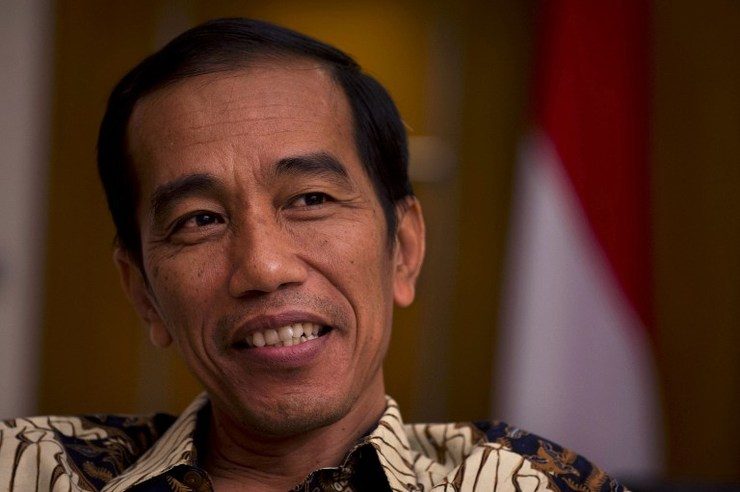SUMMARY
This is AI generated summarization, which may have errors. For context, always refer to the full article.

JAKARTA, Indonesia – Just weeks before Joko “Jokowi” Widodo takes office, a ham-fisted attempt by the state energy firm to tackle huge fuel subsidies has sparked panic buying and highlighted the most pressing economic issue confronting Indonesia’s next president. (READ: Jokowi clears last hurdle to presidency and reforms)
The subsidies are a perennial dilemma for Indonesian leaders – economists have long decried the expensive payouts as unsustainable, yet cutting them is hugely unpopular, and has in the past sparked violent protests.
But with economic growth slowing, observers say Indonesia can little afford to keep pouring around a fifth of the annual budget into keeping fuel prices artificially low, a program that diverts money from much-needed reforms and has long caused concern among investors.
Outgoing President Susilo Bambang Yudhoyono has made some increases to the price of petrol and diesel during a decade in power, including a hike that averaged more than 30% last year, but has been criticized for not going far enough.
Politicians spent months this year gearing up for pivotal presidential elections and put the subsidy issue on the back burner, but it has come back into sharp focus as Widodo, known by his nickname Jokowi, prepares to take office on October 20.
He has made slashing the payouts a priority and wants to redirect the money to other programs, from overhauling creaking infrastructure to helping the country’s poorest.
“I am prepared to be unpopular,” he said last week, adding that money from subsidies could be redirected to “villages, small and medium enterprises… farmers… fishermen and their boats”.
On the election campaign trail, Widodo said he would gradually reduce the subsidies over several years. But recent events have underscored the huge challenge facing him.
Botched half-measures
As fears grew that the subsidized fuel quota for the year was running down too quickly, state energy company Pertamina, which manages the program, started limiting supplies.
But as news spread at the start of last week, cars and motorcycles rushed to fill up, with hours-long queues forming at petrol stations across the country, particularly on the main island of Java, with supplies at some kiosks running out entirely.
With the queues showing no sign of letting up after several days, Pertamina backtracked on Tuesday and stopped rationing fuel.
Some economists saw this as yet another botched half-measure from a government that has failed to tackle the issue of fuel subsidies head-on. Other recent steps include banning the sale of subsidized fuel on toll roads and in parts of Jakarta.
Wellian Wiranto, a Singapore-based economist with OCBC Bank, said the long queues were “a rather visual reminder that the outgoing government’s attempt at ‘quantitative tightening’ is simply not working”.
Widodo has sought to take action even before being sworn in as president, and last week appealed to Yudhoyono to share the burden by starting to cut the subsidies before he leaves office.
However, the request was rejected. Chief Economics Minister Chairul Tanjung said afterwards that “people are already shouldering a heavy burden so the government has decided not to add to this”.
Analysts say this means no honeymoon for Widodo, who will soon step down as Jakarta governor before taking over the presidency, as he will have to grasp the nettle of subsidy reform from day one, risking an immediate public backlash.
Some of the opposition comes from the army of new car and motorbike owners in the emerging middle-class of the fast-growing economy, who enjoy the benefits of subsidized petrol that costs just 6,500 rupiah (55 US cents) a liter (or $2.08 a US gallon), among the cheapest in Asia.
But any attempt to hike prices also sparks anger among the wider public, as it causes an immediate spike in inflation due to the increased cost of transporting everyday goods.
Economists and a growing number of Indonesian policymakers view the program as damaging, however, as it takes money away from developing long-term policies to help the millions hovering around the poverty line and revive a slowing economy.
The payouts are also blamed for a ballooning current account deficit – long a concern for investors – as Indonesia has to import huge amounts of oil to meet the growing demand for subsidized fuel.
While few doubt slashing the cost of fuel will be tough for Widodo, OCBC’s Wiranto said he could secure popular support for the move if he runs a campaign that communicates the true cost.
“Not just in terms of time lost waiting in long lines under the hot sun for fuel, but also how many schools and hospitals those billions could have built,” he said. – Rappler.com
Add a comment
How does this make you feel?
There are no comments yet. Add your comment to start the conversation.